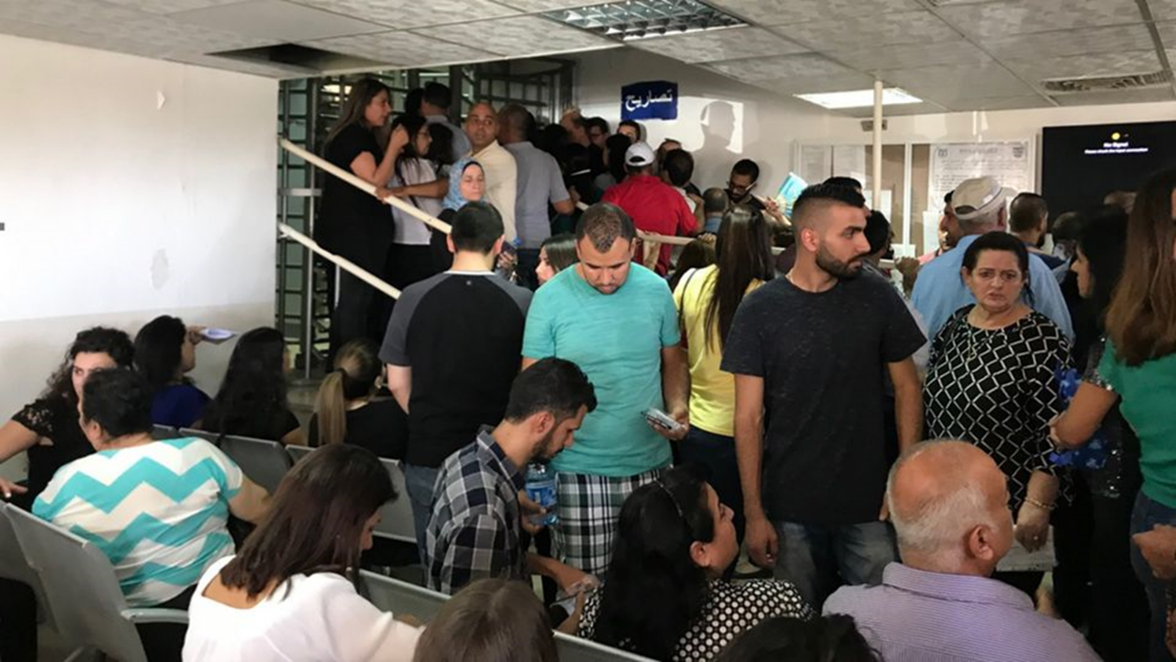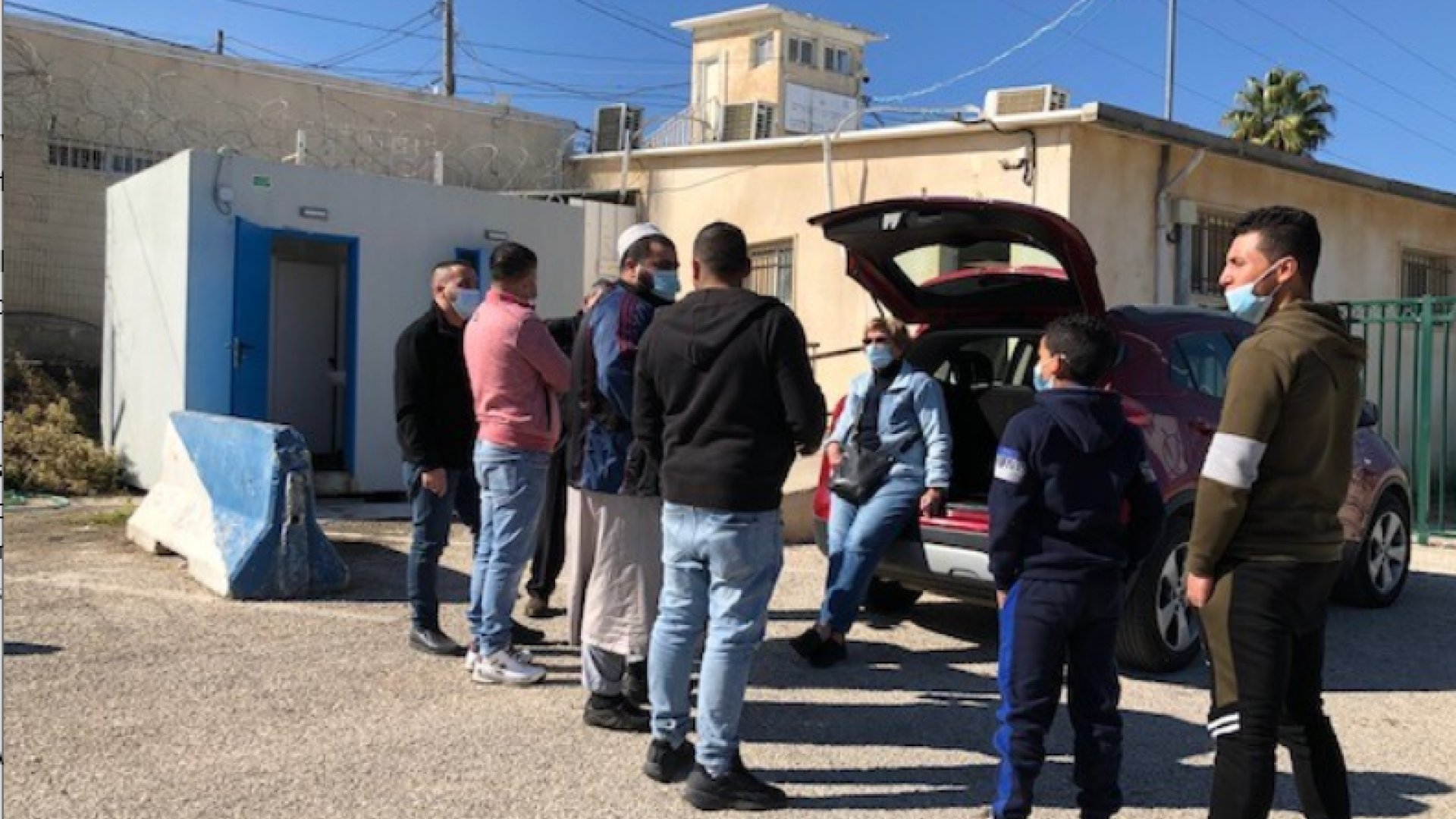The Bureaucratic Maze of the Occupation
Open/closed to Palestinians – the permit system and regime of preventing entry
In 2003 Israel instated a 'regime of permits' defining all the kinds of permits needed by Palestinians when they leave their home and move around inside the occupied territories and into Israel. The Civil Administration formulated about 100 types of such permits, but in order to obtain them one needs to cross a winding bureaucratic maze.
formulated about 100 types of such permits, but in order to obtain them one needs to cross a winding bureaucratic maze.
Every time Palestinians need to go out, whether for simple needs such as work, studies, visiting relatives, performing religious ceremonies, or accompanying ill patients – they run up against restrictions and complicated bureaucratic demands. Although the large checkpoints underwent expansive renovations in 2019 that are supposed to make the actual crossing easier, the permit system still piles up numerous problems, so that crossing becomes even stricter. It is an apparatus that consists almost entirely of sweeping restrictions that impact thousands of innocent Palestinians superfluously, people who are not involved in any part of the struggle against Israel and against whom the Israeli army has no ‘security’ issues whatsoever. Note importantly, that the permit regime and the prevention of entry regime (Blacklisting) clashes with the principles of international law. The violation of human rights is disproportional and constitutes collective punishment of the entire Palestinian population.

F.’s permit acrobatics
F., born in one of the villages near Jenin, is married to a Palestinian woman who is a resident of Israeli Jerusalem, and lives there with her and with their six small children. Since F. is still not eligible to apply for family unification, he is considered an illegal alien in his own home. His wife is ill with cancer and receives ongoing chemotherapy, needing accompaniment to arrive at her treatment sessions. In the past F. received a permit to accompany her, but this has not been re-issued. Recently he was arrested but released on bail after several days and sent to his family’s home in the West Bank until his trial. Having no choice, he moved his family to the village. When we managed to obtain an accompanier’s permit for him until July, the Covid-19 virus struck and all passage to Jerusalem became impossible. When the family finally returned to Jerusalem, the court session was set, but he did not manage to get there because he could not obtain a permit to cross the checkpoint. The court session was postponed. Nor was the accompanier’s permit re-issued.
(From a report of MW bureaucratic team, 2020)

The bride will not wear white
L. is an educated and assertive 45-year old Palestinian woman. In Palestinian society, women of her kind have difficulties finding partners. Still, she did find a worthy partner, Us-born, without any close relatives in the West Bank. The two intend to make their home in the US. In order to proceed with visa arrangements, she must report to the American consul in Jerusalem, but when she applied to the Civil Administration for a transit visa, she found out she was prevented from entering Jerusalem, for unknown reasons. That is why she cannot get a visa.
for a transit visa, she found out she was prevented from entering Jerusalem, for unknown reasons. That is why she cannot get a visa.


Permits/Prohibitions
The permit system was created for security purposes, but is based on the State of Israel’s policy of denying Palestinians their right to enter territories and has become an instrument of controlling an entire population.
The system’s rigidity is expressed in separating the permits from the needs: whoever have been issued a permit to farm in the seamline zone may not use it to reach a family event – they must apply for a special “permit for personal needs”. A permit of an infrastructure worker does not suit traders, and so forth. Consequently, one cannot lead a multi-dimensional organic life, but is forced – at best – to lay it out as a series of detached occasions. Such policy turns the people who need permits into disciplined subjects under constant supervision. Movement restrictions, then, are one of the main factors preventing any kind of economic stability in the occupied territories – increasing Palestinian dependence upon Israeli economy, with all the implications involved.
Since 2019 there is a a new Civil Administration app which the Palestinians can download to their smart phone and use for obtaining various kinds of entry permits. Printouts that constituted possible forgeries in the past are gradually disappearing. However, many of the Palestinians have no access to the internet. Furthermore, downloading the app enables the Israeli security services (Shabak) to enter one’s phone data.
The Israeli Civil Administration issues a magnetic card that serves as a second ID for any Palestinian over 16 years of age. The magnetic strip contains biometric data that identify the holder by their facial features, fingerprints and hand. Anyone entering Israel for any purpose, even a one-time visit, needs a magnetic card in order to be issued the relevant permit. The magnetic card’s main purpose is to enable the authorities to collect and keep data of the adult Palestinian population in the occupied territories and thus tighten their control.
